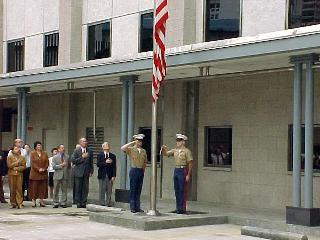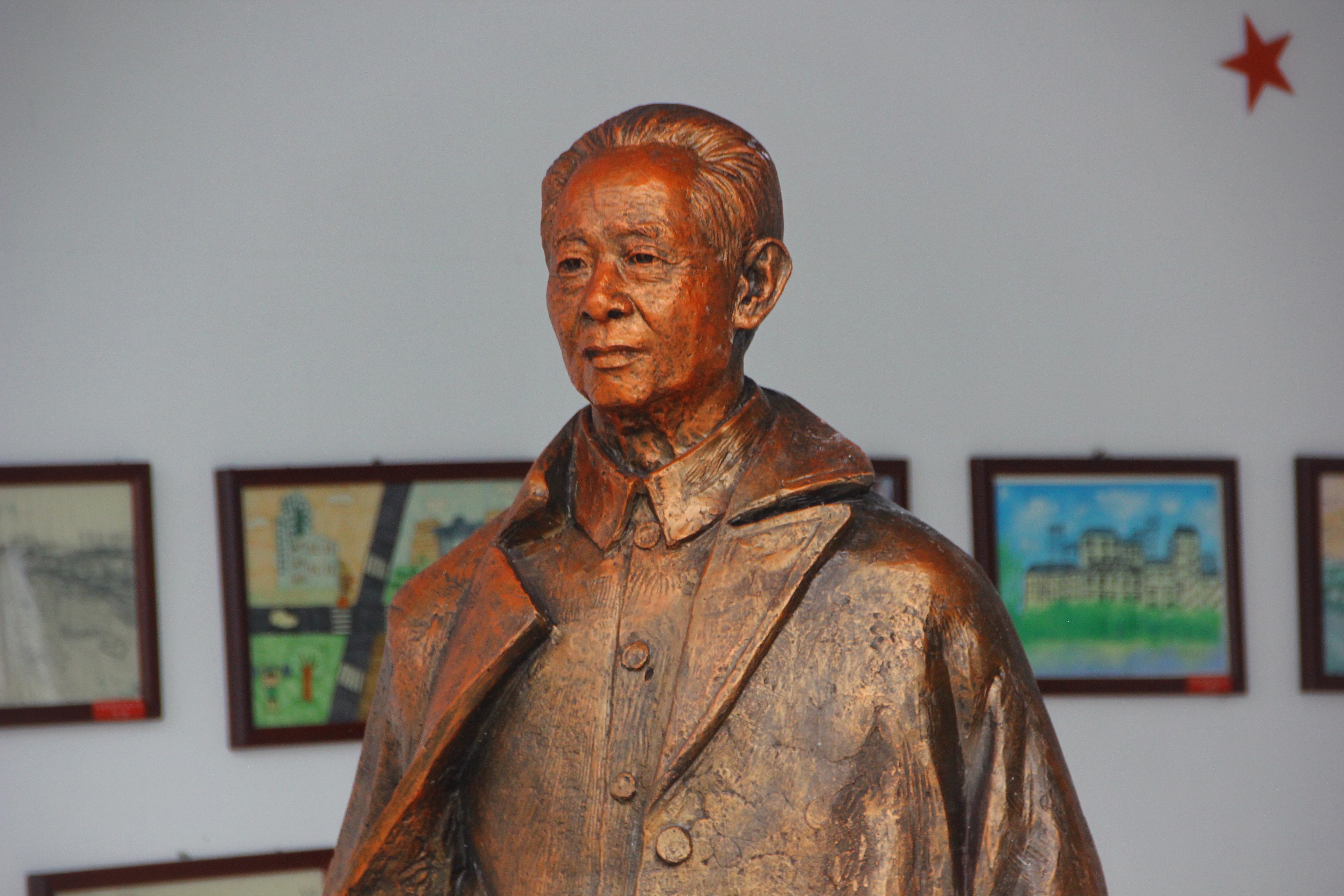|
Guangming Daily
The ''Guangming Daily'', also known as the ''Enlightenment Daily'', is a national Chinese-language daily newspaper published in the People's Republic of China. It was established in 1949 as the official paper of the China Democratic League. Starting from 1982, it was run by the Chinese Communist Party (CCP), and was officially recognized as an institution directly under the Central Committee of the CCP from 1994. As one of China's "big three" newspapers during the Cultural Revolution, it played an important role in the political struggle between Hua Guofeng and the Gang of Four in 1976 and between Hua and Deng Xiaoping in 1978. History The ''Guangming Daily'', then romanized as ''Kuangming'', was launched on 16 June 1949 in Beijing. It was originally the official newspaper of the China Democratic League, but later became the Chinese Communist Party's official organ for China's educated elite. In 1955, ''Guangming Daily'' became the first newspaper in China to fully switch ... [...More Info...] [...Related Items...] OR: [Wikipedia] [Google] [Baidu] |
Newspaper
A newspaper is a Periodical literature, periodical publication containing written News, information about current events and is often typed in black ink with a white or gray background. Newspapers can cover a wide variety of fields such as politics, business, sports, art, and science. They often include materials such as opinion columns, weather forecasts, reviews of local services, Obituary, obituaries, birth notices, crosswords, editorial cartoons, comic strips, and advice columns. Most newspapers are businesses, and they pay their expenses with a mixture of Subscription business model, subscription revenue, Newsagent's shop, newsstand sales, and advertising revenue. The journalism organizations that publish newspapers are themselves often Metonymy, metonymically called newspapers. Newspapers have traditionally been published Printing, in print (usually on cheap, low-grade paper called newsprint). However, today most newspapers are also Electronic publishing, published on webs ... [...More Info...] [...Related Items...] OR: [Wikipedia] [Google] [Baidu] |
Red Flag (magazine)
The ''Red Flag'' () was a Political journalism, journal on political theory, published by the Chinese Communist Party. It was one of the Two Newspapers and One Journal during the 1960s and 1970s. The newspapers were ''People's Daily'' and ''Guangming Daily (China), Guangming Daily''. ''People's Liberation Army Daily'' is also regarded as one of them. History ''Red Flag'' was started during the Great Leap Forward era in 1958. The journal was the successor to another journal, ''Study'' (Chinese: ''Xuexi''). The title of ''Red Flag'' was given by Mao Zedong. Chen Boda was the editor of the journal, which served as a crucial media outlet during the Cultural Revolution - China, Cultural Revolution. ''Red Flag'' was freely distributed in Hong Kong and Southeast Asia until 1958 when the "undesired" foreign publications were banned through the Undesirable Publications Ordinance. As a result, its circulation became 3,000 copies in contrast to 5,000 copies before the implementation of t ... [...More Info...] [...Related Items...] OR: [Wikipedia] [Google] [Baidu] |
United States Bombing Of The Chinese Embassy In Belgrade
On May 7, 1999, during the NATO bombing of Yugoslavia (Operation Allied Force), five U.S. Joint Direct Attack Munition guided bombs hit the People's Republic of China embassy in Belgrade, Serbia, killing three Chinese journalists and outraging the Chinese public. According to the U.S. government, the intention had been to bomb the nearby Yugoslav Federal Directorate for Supply and Procurement (FDSP). President Bill Clinton apologized for the bombing, stating it was an accident. Central Intelligence Agency (CIA) Director George Tenet testified before a congressional committee that the bombing was the only one in the campaign organized and directed by his agency, and that the CIA had identified the wrong coordinates for a Yugoslav military target on the same street. The Chinese government issued a statement on the day of the bombing, calling it a "barbarian act". In October 1999, five months after the bombing, ''The Observer''Note that the story actually appears on ''The Guard ... [...More Info...] [...Related Items...] OR: [Wikipedia] [Google] [Baidu] |
Publicity Department Of The Chinese Communist Party
The Publicity Department of the Central Committee of the Chinese Communist Party, also known as the Propaganda Department or Central Propaganda Department, is an internal division of the Central Committee of the Chinese Communist Party (CCP) in charge of spreading its ideology, media regulation, as well as creation and dissemination of propaganda. The department is also one of the main entities that enforces media censorship and control in the People's Republic of China. The department is a key organ in the CCP's propaganda system, and its inner operations are highly secretive. History The department was founded in May 1924. At its 1924 establishment, the department was structured using its counterpart in the Soviet Union as a model. In 1938, Mao Zedong stated that the department's focus should be publishing text books for soldiers and instructional material for cadres. During World War II, the department was assigned leadership and censorship tasks in the areas of theo ... [...More Info...] [...Related Items...] OR: [Wikipedia] [Google] [Baidu] |
Reform And Opening
Reform and opening-up ( zh, s=改革开放, p=Gǎigé kāifàng), also known as the Chinese economic reform or Chinese economic miracle, refers to a variety of economic reforms termed socialism with Chinese characteristics and socialist market economy in the People's Republic of China (PRC) that began in the late 20th century, after Mao Zedong's death in 1976. Guided by Deng Xiaoping, who is often credited as the "General Architect", the reforms were launched by reformists within the ruling Chinese Communist Party (CCP) on December 18, 1978, during the ''Boluan Fanzheng'' period. A parallel set of political reforms were launched by Deng and his allies in the 1980s, but eventually ended in 1989 due to the crackdown on the Tiananmen Square protests, halting further political liberalization. The economic reforms were revived after Deng Xiaoping's southern tour in 1992. The reforms led to significant economic growth for China within the successive decades; this phenomenon has sin ... [...More Info...] [...Related Items...] OR: [Wikipedia] [Google] [Baidu] |
Two Whatevers
The "Two Whatevers" ( zh, s=两个凡是, p=Liǎng gè fán shì) refers to the statement that "We will resolutely uphold whatever policy decisions Chairman Mao made, and unswervingly follow whatever instructions Chairman Mao gave" (). This statement was contained in a joint editorial, entitled "Study the Documents Well and Grasp the Key Link", printed on 7 February 1977 in ''People's Daily'', the journal '' Red Flag'' and the '' PLA Daily''. History The policy was advocated by the Chinese Communist Party chairman Hua Guofeng, Mao's successor, who had earlier ended the Cultural Revolution and arrested the Gang of Four. However, this policy proved unpopular with Deng Xiaoping and other party leaders advocating market reform. On a 7 February 1977 editorial titled "Study the Documents Well and Grasp the Key Link" which appeared in ''People's Daily'', ''Red Flag'', and ''People's Liberation Army Daily'', Hua articulated the "Two Whatevers" slogan: "We will resolutely uphold wha ... [...More Info...] [...Related Items...] OR: [Wikipedia] [Google] [Baidu] |
1978 Truth Criterion Controversy
The 1978 Truth Criterion Controversy (), also known as the 1978 Truth Criterion Discussion, sometimes referred to as the First Great Debate () in contemporary China, was a sociopolitical debate around 1978, mainly revolving around Hua Guofeng's "Two Whatevers" and Deng Xiaoping's "Reform and opening up". The debate was also the origin of the " New Enlightenment" in mainland China in the 1980s. Background End of Cultural Revolution Death of Mao Zedong Mao Zedong, organizer of the Cultural Revolution and then Chairman of the Chinese Communist Party (CCP), died on September 9, 1976, at the age of 82, which caused a power vacuum within the CCP. As Mao hadn't chosen an official successor and after conflicts between various factions emerged during and after the Cultural Revolution, Hua Guofeng, a moderate Maoist, held the position of chairman. Arrest of the Gang of Four One month after Mao's death, Hua Guofeng together with Ye Jianying and Wang Dongxing arrested the radic ... [...More Info...] [...Related Items...] OR: [Wikipedia] [Google] [Baidu] |
Hu Fuming
Hu Fuming (; July 1935 – 2 January 2023) was a Chinese scholar and politician. Biography In September 1955, he studied journalism at Peking University. In 1956, he entered the Philosophy Research Class of Renmin University of China. After graduating in 1962, he taught at the Political Department of Nanjing University (later renamed the Department of Philosophy). On 11 May 1978, his essay article '' Practice is the Sole Criterion for Testing Truth'' was published and was revised several times. This publication was noteworthy in connection to the Boluan Fanzheng era. In November 1982, Fuming became the Deputy Minister of the Propaganda Department of the CPC Jiangsu Provincial Committee, before being appointed Minister in 1985. In 1987, he became vice chairman of the Jiangsu Provincial Committee of the Chinese People's Political Consultative Conference. On 18 December 2018, he was awarded the title of Pioneer of Reform. Fuming died on 2 January 2023, at the age of 87, from C ... [...More Info...] [...Related Items...] OR: [Wikipedia] [Google] [Baidu] |
Phoenix Television
Phoenix Television is a majority State-owned enterprise, state-owned television network that offers Standard Chinese, Mandarin and Cantonese-language channels that serve mainland China, Hong Kong, Macau, and other markets with substantial Chinese-language viewers. It is headquartered in Shenzhen and Hong Kong. It is also registered in the Cayman Islands. The founder of Phoenix TV, Liu Changle (), formerly served as an officer and political instructor in the People's Liberation Army in its 40th Group Army. He later became a journalist for the Chinese Communist Party (CCP)-controlled China National Radio after the Cultural Revolution and maintains strong connections to the CCP's leadership. Liu is a standing member of the National Committee of the Chinese People's Political Consultative Conference. Phoenix Television describes itself as a Media of Hong Kong, Hong Kong media outlet but holds a non-domestic television programme services license in Hong Kong. Most of the company ... [...More Info...] [...Related Items...] OR: [Wikipedia] [Google] [Baidu] |
Chairman Mao's Quotations
''Quotations from Chairman Mao'' ( zh, s=毛主席语录, t=毛主席語錄, p=Máo Zhǔxí Yǔlù, commonly known as the "红宝书" zh, p=hóng bǎo shū during the Cultural Revolution), colloquially referred to in the English-speaking world as the Little Red Book, is a compilation book of quotations from speeches and writings by Mao Zedong (formerly romanized as Mao Tse-tung), the former chairman of the Chinese Communist Party, published from 1964 to 1979 and widely distributed during the Cultural Revolution. Publication process ''Quotations from Chairman Mao Tse-tung'' was originally compiled by an office of the ''PLA Daily'' (''People's Liberation Army Daily'') as an ideological handbook. It developed out of Lin Biao's practice of incorporating the study of Mao's texts and model soldiers like Lei Feng into daily drills. Lin's approach became known as the "lively study, lively application" of Mao Zedong Thought. In 1961, Lin had required PLA Daily to publish a Mao quote ... [...More Info...] [...Related Items...] OR: [Wikipedia] [Google] [Baidu] |



